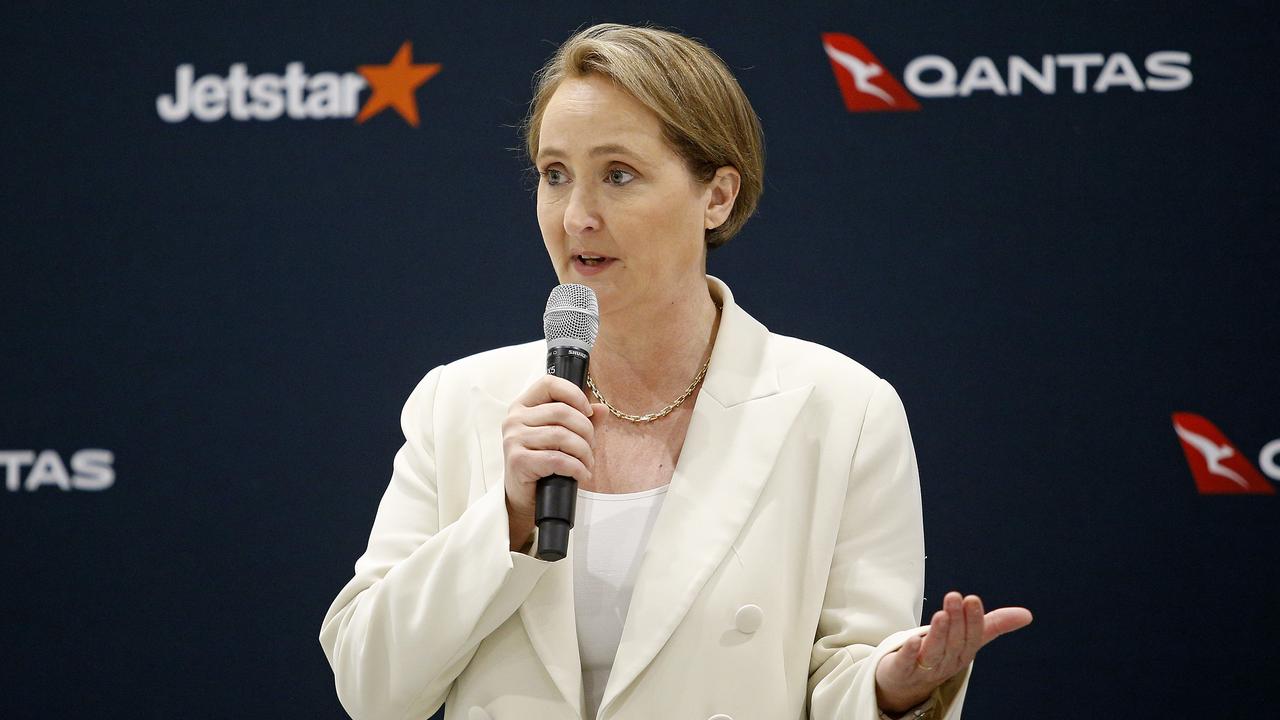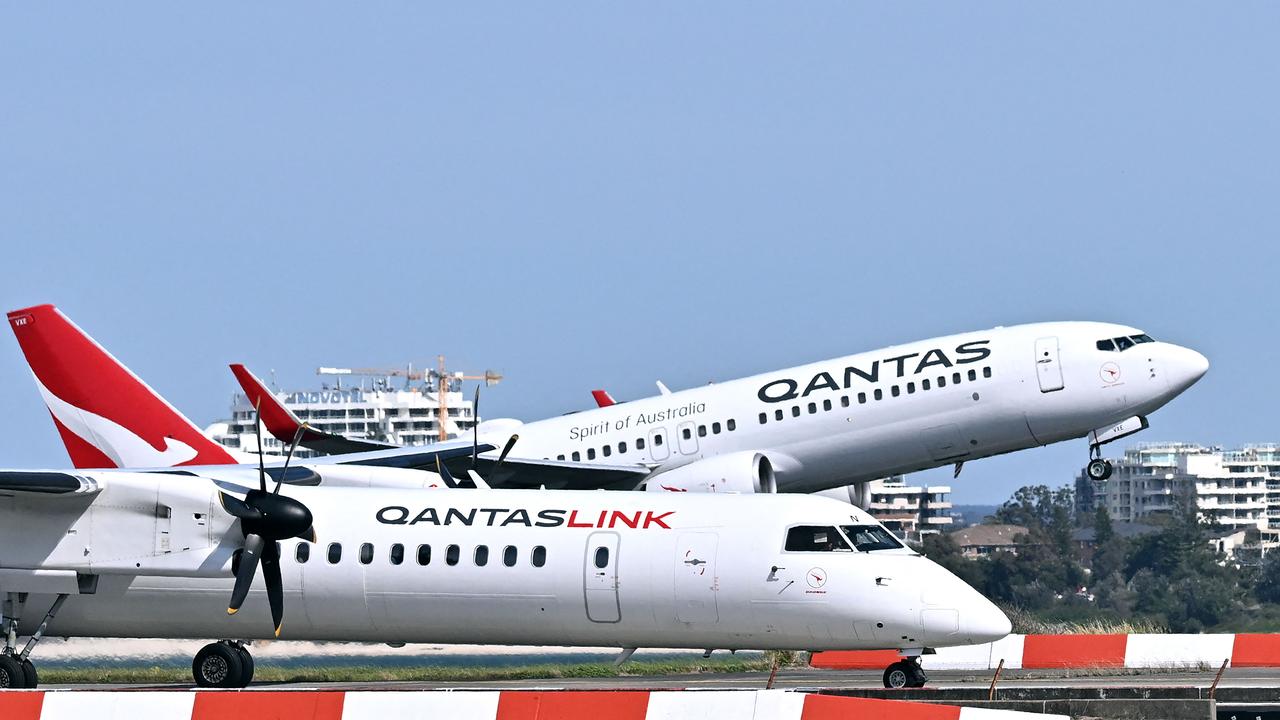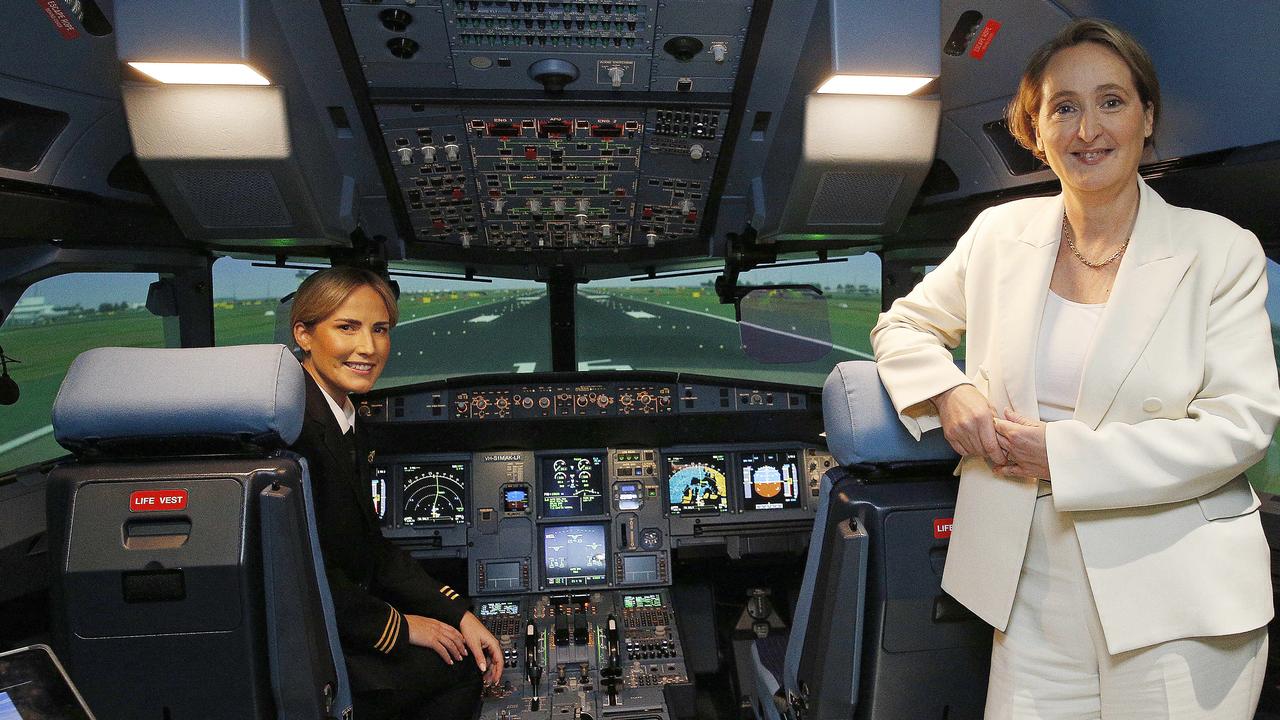How long can Qantas boss keep the airline in balance?
CEO Vanessa Hudson will find it harder to keep everyone onside as she navigates the end of the post-Covid-19 travel boom.

For now, Qantas chief executive Vanessa Hudson has the wind behind her back.
She is slowly winning over passengers; unions are coming around (slowly); and even her investors are prepared to give her the room needed to make reset the airline.
And at some point – and possibly soon – one of those three groups are going to risk upsetting the balance by demanding more. Hudson will find them harder to keep onside as she navigates the end of the post-Covid-19 travel boom.
The risk is whether the Qantas of the future will be a much higher cost airline to run. That’s a danger for a business that is so capital intensive. Former boss Alan Joyce got the balance all wrong by looking after shareholders at the expense of customers and staff. The shorter-term focus and throttling of investment and ripping out costs, generated windfall profits, but eventually cost Joyce and Qantas their reputation.

As Hudson works on her mandate to rebuild reputation while setting the airline up for the longer term, chances this time it will be shareholders whose patience will be tested.
Costs are rising faster than Hudson can find savings, and softer demand for flights and more capacity are bringing down ticket prices.
The Albanese government has only added to those costs with its Same Job, Same Pay workplace agenda. BHP boss Mike Henry this week called out the impact of the changes on his business, it’s also a big hit for Qantas. An agreement struck between the airline and flight attendants will see pay rises given to more 800 domestic cabin crew and more than 2500 international crew on contract agreements.
This means $60m in additional costs for the airline. Qantas’ flight crew are now more expensive than big rival flag carriers in the Middle East. Therefore, to keep things in balance, Hudson will need to find savings elsewhere or ultimately pass the cost on to customers.
Over the past year, Qantas has spent more than $230m in improving so-called customer pain points like baggage, food and call centre wait times. There are more heavy investments to come including digital channels and some of these will represent ongoing costs.
After nearly a year in the top job, Hudson is working hard to keep everyone happy. It’s working so far, with higher satisfaction and reputational scores. Her planes are increasingly taking off on time, bookings are firm, and her staff satisfaction ratings are on the mend.
Even shareholders are being looked after with another share buyback of $400m, outlined Thursday, helping to push up its shares. The airline too is on the verge of paying dividends as it continues to burns through its tax losses.
“Are we getting the balance right? I think that this is well on the way to achieving that. The job is not done yet,” she tells The Australian.
Long term
Complicating that balance is the need to run the airline for the long term. Hudson’s challenge will be to continuing to winning over customers, staff and investors today while keep making investments in a new fleet that could take decades to arrive. Aviation is a hard game, and the recent demise of two airlines in Australia shows how tough it is.
Hudson first full year accounts as CEO shows Qantas is putting the dark days of Covid-19 groundings behind.
However, the environment has clearly shifted. Closely-watched underlying earnings of $2.08bn for the year were down nearly 16 per cent, even as revenue was up more than 10 per cent.
Earnings at the flagship Qantas domestic business went backward last year on higher costs and flattish revenue, while margins at the international business halved. The low-cost carrier Jetstar and Qantas loyalty remain the standout for Qantas, with earnings and revenue rising at double-digit rates.

Profit margins across the group are being squeezed to pre-Covid levels at the same time that revenue per seat kilometres travelled is falling. This suggests Qantas can no longer rely on high ticket prices to support earnings for the coming year.
The dialogue with shareholders is ongoing, but Hudson is quick to remind them that every dollar of investment in the airline generates value.
The 20 new planes that are arriving this coming year not only build out capacity and win over customers, they vastly cheaper to run. So too, digital investments speed up the experience of customers without the need to go through call centres, she adds.
Nor is Hudson being complacent on costs. Regardless of the environment, airline will need to continue to transform and become more efficient. This won’t be easy, and some programs will take years, she says.
“We are a disciplined business, we don’t just kind of accept costs up and walk away. We are going to have to find ways to offset it, because remaining competitive is incredibly important for the business”.
johnstone@theaustralian.com.au
Originally published as How long can Qantas boss keep the airline in balance?



